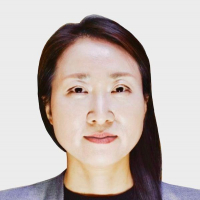Award Winner for Volume 22

Re-imagining the Past: Virtuous Life and Vitality in Han Kang’s The Vegetarian
Virtue is one of the essential elements in a human being’s social and ethical way of life. It makes people embrace personal trauma and social strife and conveys the power of good vitality to their surroundings. Han Kang’s novel The Vegetarian, published in 2007, represents a revolutionary idea through the protagonist Yeong-hye’s vegetarianism from the perspective of virtuous values. Her diet is unsuitable for her health; however, it is a means to rearrange her past and to help heal the trauma of the rampant violence she has experienced in herself, her family, society, and history of South Korea without the need to sacrifice any human lives. The virtuous values that Yeong-hye pursues ultimately demonstrate the spirit of empathy, harmony, caring, and true freedom, which further proves that it is an ideal moral theory for the general community—one that requires extensive understanding and inclusion for virtuous power. In this novel, Han Kang illustrates that a woman in a cannibalistic society can express her virtuous vitality by practicing ideal, intellectual, innovative, and moral virtue and contribute to the building of a virtuous society through her noble motivation and execution.
This paper explores “Re-imagining the Past: Virtuous Life and Vitality in Han Kang’s The Vegetarian”; the focus is on the protagonist Yeong-hye’s traumatic experiences and the concept of virtue ethics. The motivation for this study stems from my lengthy experience analyzing Willa Cather’s works through the lens of virtue ethics. I have always been interested in examining the pervasive issues of domestic, social, and national violence from an ethical perspective, seeking solutions for humans’ inner healing. I realized that this perspective could also be applied to the works of Han Kang, one of the most prominent contemporary South Korean writers. Han is often referred to as the “daughter of Gwangju,” a city in which numerous civilians striving for democratization were massacred by the military. Consequently, it explored The Vegetarian, one of Han’s most representative works, through the lens of virtue ethics and its emphasis on vitality.
While previous studies have primarily focused on the problems of translation and Yeong-hye’s psychological and behavioral changes, this study contributes a novel perspective through its focus on virtue ethics. This approach provides deeper insight into various academic fields, including English literary studies. This study originated from my contemplation regarding the role of literature in healing human trauma by fostering continual reflections on the past. Rather than focusing on ethics confined to traditional values, this study examines contemporary social issues through the lens of virtue ethics, which emphasizes human emotions and the consequences of virtuous actions.
Beyond academia, this study has implications for reexamining and reinterpreting the contemporary issues of war and the pervasive violence present in irrational societies. Furthermore, I hope that the study will promote empathy for human suffering and uphold the sanctity of human life, which are essential characteristics of a virtuous society. I hope to conduct more in-depth research by applying virtue ethics to other works by Han in the future, ultimately contributing to a deeper understanding of virtue ethics, including its emphasis on a virtuous life and vitality.
—Hyojeong Byun